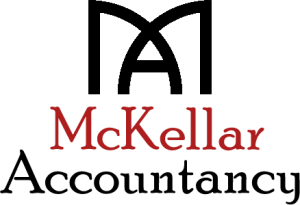[av_image src=’https://www.mckellaraccountancy.com/wp-content/uploads/2017/02/Paper-Hot-Cup-Mockup-vol-4-845×321.jpg’ attachment=’403′ attachment_size=’entry_with_sidebar’ align=’center’ styling=” hover=” link=” target=” caption=” font_size=” appearance=” overlay_opacity=’0.4′ overlay_color=’#000000′ overlay_text_color=’#ffffff’ animation=’no-animation’][/av_image]
[av_heading tag=’h3′ padding=’10’ heading=’McKellar Accountancy June eNews’ color=” style=” custom_font=” size=” subheading_active=” subheading_size=’15’ custom_class=”][/av_heading]
[av_textblock size=” font_color=” color=”]
In this month’s Enews we report on the latest OTS report on simplification of everyday tax for smaller businesses as well as HMRC tackling dishonest dog breeders.
We also update you on the Welsh tax code ‘mix up’ as well as the consultations on various issues including Companies House reforms, Private Residence Relief and letting relief changes.
Finally, with the latest advisory fuel rates for company cars, the P11D deadline looming and non-compliance with minimum wage regulations, there is a lot to update you on.
Article Index
- OTS calls for simplifying everyday tax for smaller businesses
- HMRC taskforce tackles dishonest dog breeders
- Forms P11D – reporting employee benefits
- Welsh taxpayers income tax code mix-up
- Consultation on Companies House reforms
- Consultation on ancillary capital gains reliefs
- Advisory fuel rates for company cars
- Non-compliance with minimum wage regulations
OTS calls for simplifying everyday tax for smaller businesses
A report by the Office of Tax Simplification (OTS) calls on the government to prioritise action to ‘address long-standing concerns about the experience of smaller businesses’. The report considers the business lifecycle, especially those starting up and provides recommendations in five areas:
- providing simple step-by-step guidance about the key things a business needs to do in its early days to help things run smoothly
- improving the operation of the PAYE system
- implementation of HMRC’s Agents Strategy
- improving the mechanics of the Corporation Tax return process
- ensuring that tax changes are built on an understanding of business processes.
If you would like any help with your taxes at any stage of your business life cycle, please do get in touch.
Internet link: GOV.UK simplifying tax
HMRC taskforce tackles dishonest dog breeders
A taskforce has recovered more than £5 million by tackling dishonest dog breeders selling pups on the black market. HMRC set up the taskforce in October 2015 after discussions with animal welfare groups that were concerned that tens of thousands of puppies were being reared in unregulated conditions and sold illicitly every year.
The taskforce uncovered fraudsters selling puppies on a mass scale, for a huge profit and due to the underground nature of the activity, failing to declare their sales. Using civil and criminal enforcement powers, HMRC has recovered £5,393,035 in lost taxes from 257 separate cases since the formation of the taskforce in October 2015.
The breeders and traders targeted include:
- two unconnected puppy breeders in the west of Scotland who were handed tax bills of £425,000 and £337,000
- a puppy breeder in the Midlands who was a former Crufts judge, given a £185,000 bill
- a dealer in Northern Ireland told to pay £185,000 in tax
- a Somerset puppy breeder was given a £114,000 bill
- a puppy dealer in the east of Scotland was handed a tax bill in excess of £400,000
- a Swansea puppy breeder was given a £110,000 tax bill.
Financial Secretary to the Treasury, Mel Stride MP, said:
‘It is utterly appalling that anyone would want to treat puppies in such an inhumane way and on such a scale. It’s also deeply unfair to all of the legitimate businesses who do pay the right tax, and the total recovered by the taskforce is equivalent to the annual salaries for more than 200 newly qualified teachers.’
‘We continue to work hard with other government agencies and our partners to tackle these traders. We urge anyone with information about tax evasion to report it to HMRC online or call our Fraud Hotline on 0800 788 887.’
Internet link: GOV.UK news
Forms P11D – reporting employee benefits
The forms P11D which report details of benefits and some expenses provided to employees and directors for the year ended 5 April 2019, are due for submission to HMRC by 6 July 2019. The process of gathering the necessary information and completing the forms can take some time, so it is important that this process is not left to the last minute.
Employees pay tax on benefits provided as shown on the P11D, generally via a PAYE coding notice adjustment or through the self assessment system. Some employers ‘payroll’ benefits and in this case the benefits do not need to be reported on forms P11D but employers should advise employees of the amount of benefits payrolled.
In addition, regardless of whether the benefits are being reported via P11D or payrolled the employer has to pay Class 1A National Insurance Contributions at 13.8% on the provision of most benefits. The calculation of this liability is detailed on the P11D(b) form. The deadline for payment of the Class 1A NIC is 19th July 2019 (or 22nd for cleared electronic payment).
HMRC has produced an expenses and benefits toolkit. The toolkit consists of a checklist which may be used by advisers or employers to check they are completing the forms correctly.
If you would like any help with the completion of the forms or the calculation of the associated Class 1A NIC please get in touch.
Internet links: HMRC guidance Toolkit
Welsh taxpayers income tax code mix-up
From April 2019, Welsh taxpayers were assigned new income tax codes beginning with the letter ‘C’. However, HMRC recently revealed that some Welsh taxpayers were mistakenly given Scottish income tax codes by their employers. As a consequence, Welsh taxpayers have been charged income tax using the Scottish income tax rates and bands.
For 2019/20 the Welsh rate of income tax is set at 10% and this is added to the UK rates, which are each reduced by 10%. Therefore, the overall tax payable by Welsh taxpayers continues to be the same as English and Northern Irish taxpayers.
The income tax rates and bands that apply to employment income, self-employed trade profits and property income are different for taxpayers who are resident in Scotland, with tax rates and bands ranging from 19% to 46% rather than the 20% to 45% which apply across the rest of the UK. Tax codes for Scottish taxpayers begin with the letter ‘S’.
HMRC stated that it does not know the full extent of the error or how many Welsh taxpayers have been affected but they will carry out a review of the operation of Welsh tax codes in June 2019.
Llyr Gruffydd, Chair of the National Assembly for Wales’ Finance Committee, said:
‘We raised concerns about the flagging process for identifying Welsh taxpayers during our enquiries into fiscal devolution and the Welsh government’s draft budget.
‘On each occasion, we were told the matter was in hand, and the lessons from the devolution of income tax powers to Scotland, where there were similar issues, had been soundly learned and would be put into effect. We are seeking an immediate explanation of how this has happened and will be asking representatives from HMRC to appear before this Committee in the near future.’
If you have any concerns about tax codes, please get in touch.
Internet links: HMRC letter Welsh Assembly news
Consultation on Companies House reforms
The government has launched a consultation on proposed reforms at Companies House, including a ‘major upgrade’of its register.
The consultation aims to tackle misuse of the register. It also strives to provide business owners with ‘greater protection from fraud’.
The consultation seeks views on a series of reforms to limit the risk of misuse:
- knowing who is setting up, managing and controlling companies
- improving the accuracy and usability of data on the companies register
- protecting personal information on the register
- ensuring compliance, sharing intelligence and other measures to deter abuse of corporate entities
Louise Smyth, Chief Executive of Companies House, said:
‘This package of reforms represents a significant milestone for Companies House as they will enable us to play a greater part in tackling economic crime, protecting directors from identity theft and fraud, and improving the accuracy of the register.’
The consultation is open until 5 August 2019.
Internet links: GOV.UK consultation GOV.UK news
Consultation on ancillary capital gains reliefs
A capital gains tax (CGT) exemption applies when an individual disposes of a dwelling that has been used as their only or main residence under the Private Residence Relief (PRR) rules. The exemption applies as long as the relevant conditions are met throughout the total period of ownership. This relief is supplemented by ancillary reliefs that aim to deal with other related situations.
The government has previously announced and legislated to reform two of the ancillary reliefs to better target PRR at owner-occupiers. The reliefs which are being amended are:
- the final period exemption will be reduced from 18 months to nine months, although the special rules that give those with a disability, and those in care, an exemption of 36 months will not change
- lettings relief will be reformed so that it only applies where an owner is in shared occupancy with a tenant.
These changes will take effect from 6 April 2020. The government is now consulting on the changes in more detail and on how they will work in practice. It also invites views on some technical aspects of the PRR rules.
Internet link: GOV.UK consultation
Advisory fuel rates for company cars
New company car advisory fuel rates have been published which take effect from 1 June 2019. The guidance states: ‘You can use the previous rates for up to one month from the date the new rates apply’. The rates only apply to employees using a company car.
The advisory fuel rates for journeys undertaken on or after 1 June 2019 are:
| Engine size | Petrol |
| 1400cc or less | 12p |
| 1401cc – 2000cc | 15p |
| Over 2000cc | 22p |
| Engine size | LPG |
| 1400cc or less | 8p |
| 1401cc – 2000cc | 9p |
| Over 2000cc | 14p |
| Engine size | Diesel |
| 1600cc or less | 10p |
| 1601cc – 2000cc | 12p |
| Over 2000cc | 14p |
HMRC guidance states that the rates only apply when you either:
- reimburse employees for business travel in their company cars or
- require employees to repay the cost of fuel used for private travel.
You must not use these rates in any other circumstances.
The Advisory Electricity Rate for fully electric cars is 4 pence per mile. Electricity is not a fuel for car fuel benefit purposes.
If you would like to discuss your car policy, please contact us.
Internet link: GOV.UK AFR
Non-compliance with minimum wage regulations
A recent Low Pay Commission (LPC) report sets out its findings on the number of people being paid less than the statutory minimum wage.
The LPC found that, in April 2018, 439,000 workers were paid less than the National Minimum Wage (NMW). Of this amount, 369,000 were employees aged 25 and over, who were paid less than the National Living Wage (NLW), an increase from previous years. On 1 April 2019, the NMW and NLW rates rose to the hourly rates detailed below:
| Minimum wage rate | Hourly rate from 1 April 2019 |
| National Living Wage (for workers aged 25 and over) | £8.21 |
| 21-24 year-old rate | £7.70 |
| 18-20 year-old rate | £6.15 |
| 16-17 year-old rate | £4.35 |
| Apprentice rate | £3.90 |
| Accommodation Offset | £7.55 per day: £52.85 per week |
The LPC also revealed that women are ‘more likely’ than men to be paid less than the NMW, and that underpayment is common amongst younger and older workers. In addition, underpayment was more common in certain sectors including hospitality, retail, cleaning, maintenance, and childcare.
Commenting on the findings, Bryan Sanderson, Chair of the LPC, said:
‘Our analysis reveals a worrying number of people are being paid less than the minimum wage. We recently celebrated 20 years of the minimum wage – it has raised pay for millions of workers, but it is essential that people receive what they are entitled to.’
‘It is also vital for businesses to be able to operate on a level playing field, and not be illegally undercut on wages.’
Contact us for help with payroll issues.
Internet link: GOV.UK news
[/av_textblock]
[av_social_share title=’Share this entry’ style=” buttons=” share_facebook=” share_twitter=” share_pinterest=” share_gplus=” share_reddit=” share_linkedin=” share_tumblr=” share_vk=” share_mail=”][/av_social_share]







